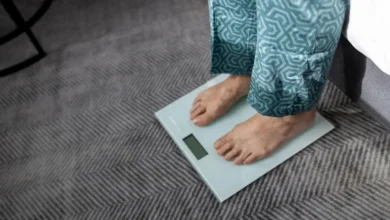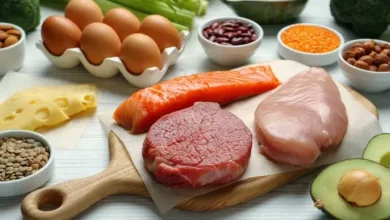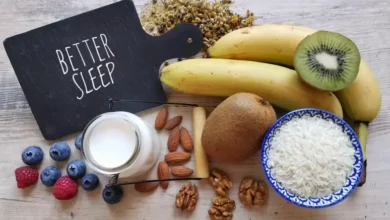What Is Intuitive Eating and Can It Work for You?
Tired of dieting? Exhausted by food rules, guilt, and the endless cycle of restriction and overeating? You’re not alone—and there’s another way. It’s called intuitive eating, and it’s transforming how people relate to food, their bodies, and their health.
Unlike traditional diets that focus on weight loss, calories, or “good” and “bad” foods, intuitive eating teaches you to reconnect with your body’s natural hunger, fullness, and satisfaction cues. It’s not a diet—it’s a mindset.
Let’s explore what intuitive eating is, how it works, and whether it might be the right path for you.
What Is Intuitive Eating?
Intuitive eating is a non-diet approach to food that encourages you to:
- Eat when you’re hungry
- Stop when you’re full
- Honor your cravings without guilt
- Reject diet culture and food rules
- Trust your body’s signals
Developed by dietitians Evelyn Tribole and Elyse Resch, intuitive eating is based on 10 principles that help people move away from restriction and toward self-trust and balance.
The 10 Principles of Intuitive Eating
- Reject the Diet Mentality
Let go of diets, food fads, and the idea that thinner equals healthier or more worthy. - Honor Your Hunger
Your body needs fuel. Don’t ignore or delay hunger—nourish it when it shows up. - Make Peace with Food
Stop labeling food as “good” or “bad.” All foods can fit into a healthy life. - Challenge the Food Police
Silence the inner critic that shames you for what or how much you eat. - Feel Your Fullness
Eat with awareness, and learn to notice when your body says it’s had enough. - Discover the Satisfaction Factor
Enjoy your meals. Food should taste good and feel good. - Cope with Emotions Without Using Food
Learn to manage stress, boredom, and emotions without turning to the pantry. - Respect Your Body
All bodies deserve dignity and care—regardless of size or shape. - Move Your Body for Joy, Not Punishment
Find movement that feels good, energizing, and sustainable—not just exercise to burn calories. - Honor Your Health with Gentle Nutrition
Make food choices that support health and satisfaction—not restriction.
Who Is Intuitive Eating For?
Intuitive eating is for anyone who:
- Is tired of dieting and wants a sustainable way to eat
- Has a history of disordered eating or yo-yo dieting
- Wants to improve their relationship with food and body image
- Values physical and mental well-being over appearance
It’s especially helpful if you:
- Struggle with emotional eating
- Feel guilty after eating certain foods
- Don’t know when you’re truly hungry or full anymore
- Want more peace and confidence around food
Benefits of Intuitive Eating
- Improved body image and self-respect
- Lower stress around food
- Better metabolism and digestion
- Increased satisfaction with meals
- More consistent energy and mood
- Less binge eating or emotional eating
- Stronger connection to hunger and fullness cues
Studies show intuitive eaters have better psychological and physical health than chronic dieters.
Common Myths About Intuitive Eating
Myth 1: It’s just an excuse to eat whatever you want
Truth: It’s about tuning into your body, not ignoring it. You learn to eat for satisfaction and health—not rules or rebellion.
Myth 2: You can’t be healthy without dieting
Truth: Health is about habits, not weight. Intuitive eating supports long-term well-being through balance, not restriction.
Myth 3: It only works if you’re thin
Truth: Intuitive eating is weight-neutral. It’s for all bodies, focused on behavior and mindset—not size.
How to Start Intuitive Eating
- Ditch diet rules—delete the apps, unsubscribe from diet culture accounts
- Tune into hunger and fullness—pause before and during meals to check in
- Give yourself unconditional permission to eat—yes, even dessert
- Practice mindful eating—slow down, savor, and enjoy your food
- Focus on how food makes you feel—energized, satisfied, sluggish, etc.
- Be compassionate with yourself—this is a learning process, not perfection
Final Thoughts: Trust Your Body Again
Your body already knows how to eat—you just need to learn how to listen. Intuitive eating is about rebuilding trust, connection, and self-respect around food. It’s not always easy, but it’s worth it.
Forget the rules. Forget the guilt. Reconnect with your hunger, your joy, and your health—on your terms.
You were born to eat intuitively. Let’s get back to that.

Hello! My name is Alan Teixeira and I am passionate about helping people live healthier, more balanced lives. From mindful eating to daily habits that promote physical and mental well-being, I believe that small, consistent changes can lead to powerful transformations.
I created this blog to share practical tips, reliable information, and thoughtful insights that can inspire you to take better care of yourself—with balance, mindfulness, and positivity.
If you are looking to improve your health, nourish your body, and build a lighter, more fulfilling routine, you are in the right place. Welcome!





